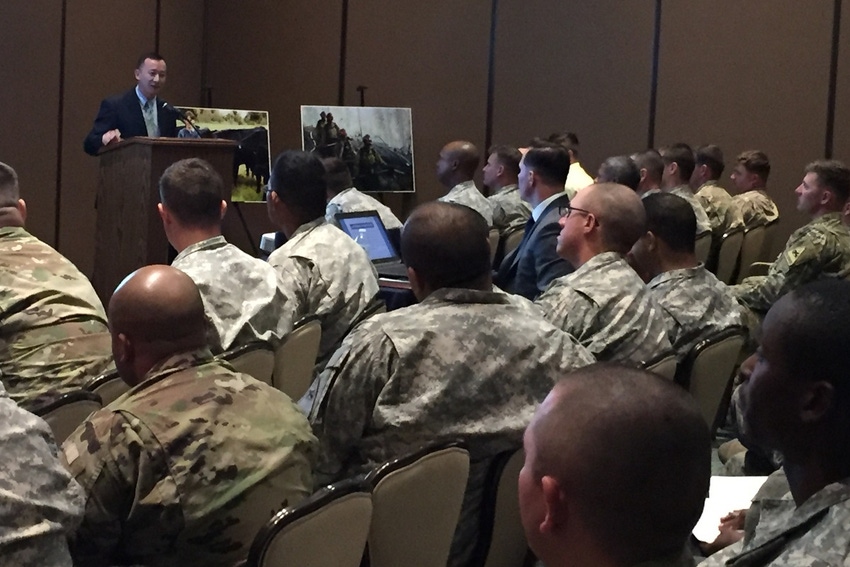
Lanon Baccam, USDA Undersecretary, takes a lot of pride in a new mission he’s taken on with the Department. As the agricultural liaison for military veterans, Baccam works with military personnel transitioning from active duty to civilian occupations through the Hire Our Heroes program.
“This is a first for USDA,” Baccam says. “For the first time, we are at the table, providing our veterans with information about opportunities in agriculture. This is the best part of my job.”
The opportunity came about following a memorandum of understanding between the Department of Defense, the Department of Labor, the Veterans Administration and USDA that brings agencies together to help veterans find ways to put their considerable military skills to good use in the civilian sector.
Baccam recently explained the opportunities to members of the military at Fort Bliss, Texas. “We want to bring soldiers in so they can find out more about agriculture,” he says.
The program provides information on opportunities available on America’s farms and ranches. Baccam says the program could help an Iowa farm boy go back home and work into the family farm. Or it could help someone with no farm or ranch experience get started in production agriculture through the numerous programs available for young and beginning farmers and ranchers. Those programs were created and funded through the Agriculture Act of 2014.
For the latest on southwest agriculture, please check out Southwest Farm Press Daily and receive the latest news right to your inbox.
“We’re finding out that veterans have skills that will transfer directly to agriculture, not counting the additional job training they received for their military occupation specialties (MOS),” Baccam says. He says leadership ability and a strong work ethic, for instance, are key prerequisites for farm work. “We think military experience is a good fit for agriculture.
AG HAS OPPORTUNITIES FOR VETS
“A lot of veterans do not fully understand all of what agriculture is,” he adds. “It’s more than crops and cattle. It’s also GPS, computers, and technology they can use in the business of agriculture.” Many of those skills, veterans learned in service.
The workshops focus primarily on opportunities in farming and ranching, not on careers within the agriculture industry, and provide information on how interested veterans may acquire capitol to begin an agricultural operation. Access to land, access to equipment and access to training from the Cooperative Extension Service (as well as other agencies) are also part of the program. Baccam says workshops explain how micro loan programs made available in the last farm bill will help jump start a farming operation and may provide initial funding for seed, fertilizer, equipment, even livestock.
Hiring Our Heroes has been active for three or four years, Baccam says, but this is the first time USDA has been in the mix. “We’re looking to visit the military bases that make sense to agriculture,” he says. Fort Bliss, surrounded by Texas farm and ranch land, was an ideal stop.
Baccam says USDA is also participating in military job fairs. “We are ready to take resumes and hire folks if we can,” he says. “We would like to employ veterans at USDA.”
As a veteran himself, Baccam says he can relate to fellow members of the military and “talk to them on a level they understand.
He adds that service men and women established not only useful skills in the military but also a feeling of responsibility and camaraderie that’s sometimes difficult to replicate in civilian life. A Farmer Veterans Coalition offers an outlet for some. But going into agriculture also offers an opportunity to continue service to the country, Baccam says.
“In the military, they share a sense of duty and a sense of responsibility. Sometimes they lose that when they leave the service. They can find it again in agriculture by producing food and fiber for America.”
About the Author(s)
You May Also Like






